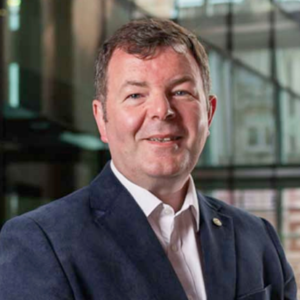A pioneering method of delivering research – popularised during the height of the COVID-19 pandemic – is being leveraged for the benefit of Greater Manchester residents.
Manchester University NHS Foundation Trust (MFT) is using a ‘high-throughput model’ to offer people with immune-mediated inflammatory diseases (IMIDs) the opportunity to take part in research.
IMIDs are a wide group of common health conditions which cause inflammation in the body. They can affect different parts of the body, but all work by triggering the immune system to fight itself, causing inflammation. Common conditions include Rheumatoid Arthritis, Systemic Lupus Erythematosus (SLE), and Psoriasis.
High-throughput explained
In this context, a high-throughput model streamlines the research participant recruitment process.
Rather than the established model of approaching patients to take part in research during their hospital visits or existing clinics, MFT research delivery staff instead compile a list of eligible people, then contact them directly to ask if they would be interested in attending a bespoke research clinic.
This means 30+ participants can be recruited in a day – a far higher number than is possible via traditional recruitment approaches.
Reducing study recruitment periods ensures research outcomes can be reported quicker, which is beneficial for participants, researchers and the wider population.
IMID BioResource explained
Part of the wider National Institute for Health and Care Research (NIHR) BioResource, the IMID BioResource is a national library of patients with inflammatory conditions, who are willing to participate in research. Patients who are part of the IMID BioResource also consent to have their data and or samples used in research into any of the disease areas supported by the NIHR BioResource, if their genetic or phenotypic profile is matches eligibility criteria.
Led by the NIHR Manchester Biomedical Research Centre (BRC), in collaboration with NIHR Newcastle BRC and NIHR Leeds BRC, the IMID BioResource aims to recruit 16,000 IMID patients, collect samples and data on patients’ conditions, and support research into the links between genes, the environment, health and disease.
By nature, it is perfectly suited to a high-throughput model of delivery, which lends itself to studies with high participant numbers and single hospital visits, for example, to provide a blood sample.
How the IMID BioResource has been delivered at MFT
Following a pilot research clinic at NIHR Manchester Clinical Research Facility (Manchester CRF) at Manchester Royal Infirmary (MRI) in March 2022, it became clear that lots of people with IMIDs were interested in participating, but were unable to do so for a number of reasons, including work commitments on weekdays, as well as location.
In response, three full weekend clinics were held within the NIHR Manchester CRF at Wythenshawe Hospital during August 2022 – resulting in a record 108 participants recruited to the NIHR Bioresource.
The clinics were supported by staff from across MFT Research and Innovation, as well as NIHR Clinical Research Network Greater Manchester (CRN GM) and The University of Manchester (UoM).
Professor Ian Bruce, Director of Manchester BRC, Consultant at the MRI and Professor of Rheumatology at UoM, is the Chief Investigator of the IMID BioResource.
Professor Bruce said: “My sincere thanks to the 108 people who consented to take part in this research during our August high-throughput clinics. The IMID BioResource is an important research asset, and every participant is playing a part in the search for the causes of conditions and helping us find new potential treatments.
“The clinics are also a great example of our ‘One Manchester’ approach, with organisations and staff from across the Greater Manchester healthcare system coming together to achieve the greatest patient benefit.”
Dr Claire Cole, Head of Research Delivery at MFT, said: “The onset of the COVID-19 pandemic meant all aspects of the research pathway had to be streamlined – which is something our Trust played a key part in through delivery of vaccine trials – and we are now leveraging that knowledge to improve and refine how we deliver our wider research portfolio. 
“We are always looking at ways to innovate and think outside the box, and the success of these first high-throughput clinics is testament to that.
“I would like to say a special thank you to colleagues from Manchester CRF, CRN GM and UoM, as we truly could not have done it without them.”
MFT has recruited more than 700 participants to the IMID BioResource so far, with plans for further high-throughput clinics in the coming months.
For more information:
- visit: nihr.ac.uk/centres-programmes/imid-bioresource/
- contact: imid@manchester.ac.uk